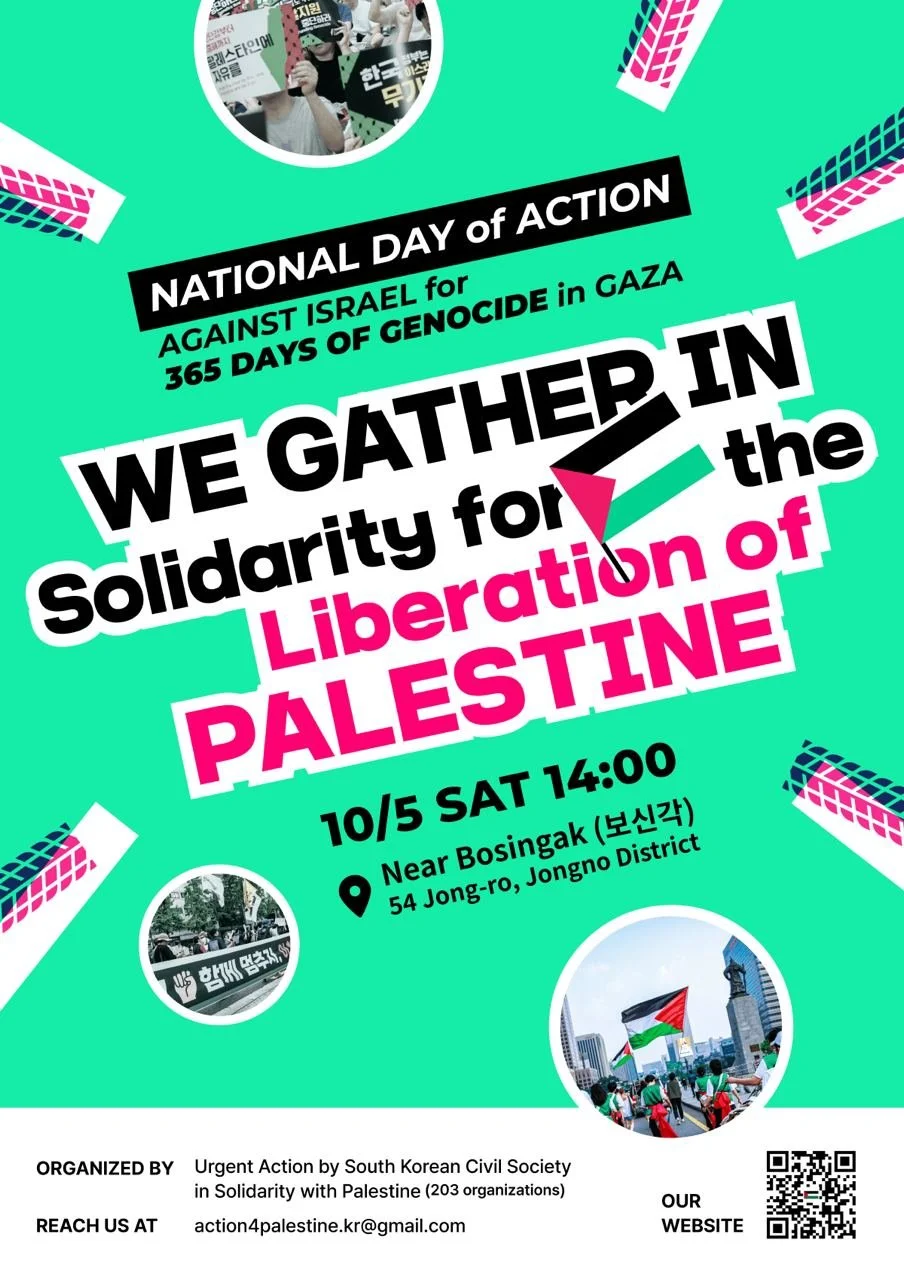Free Free Palestine!
Writted by: Cha HanSeon(Promotion Team)
Edited by: Rory Seeley Ainsworth(Promotion Team)
October 7th marks one year since Israel's genocide began.
Today, Gaza's infrastructure has been wiped out. Residents have been forced to flee their homes to the southern city of Rafah, and even Rafah continues to be bombed, all while the UN reports that Gaza is on the brink of famine. According to the Hamas Ministry of Health in Gaza, the death toll from Israeli attacks has now reached 41,000, with 92,000 injured. It has also injured hundreds in unprovoked attacks on Lebanon and continues to provoke conflict in the Middle East. Behind Israel is the military and financial power of the United States.
Israel launched a large-scale airstrike on the Jabalia refugee camp in Gaza. Several large pits can be seen at the site after the airstrike. Photo: Reuters
While many have criticized Palestinian ‘terrorism’ solely because it was initiated by Hamas, there is a long history of conflict in the region.
After the Ottoman Empire, the then dominant power in the Middle East, was defeated in World War I, the British gained control of the Palestinian territory. During this time, the British made two contradictory promises: the McMahon Declaration, which tolerated the creation of a Palestinian state to keep the Ottomans in check, and the Balfour Declaration, which promised Zionist immigration and statehood. The Holocaust galvanized the Zionist movement to create a Jewish state in Palestine, and they formed militias to take control of Palestinian territory, attacking the local population and expanding their power. After the British withdrew from Palestine in 1948, the Zionists declared the creation of the state of Israel.
Tensions between Israelis and Palestinians have been high in East Jerusalem, the Gaza Strip, and the West Bank, and there have been several confrontations with Israel. Israel and Egypt tightly controlled Gaza's borders in the name of preventing weapons from reaching Hamas, and Palestinians living in Gaza and the West Bank, west of the Jordan River, suffered under Israeli restrictions.
Four wars followed in the region, culminating in Israel's colonization of the region, and the majority of Palestinian refugees and their descendants are scattered throughout Gaza, Jordan, Syria and Lebanon.
Over the past 70 years, Israel's illegal construction of Jewish settlements in East Jerusalem and the West Bank has resulted in the displacement of Palestinians, the separation and isolation of Gaza and the West Bank, and the fragmentation of the West Bank itself, making it impossible to communicate or cooperate.
Israel's separation barrier passes between the Pisgat Zeev settlement, left, and the Shuafat refugee camp in Israel. Photo: UPI
Israel has already violated more than 50 UN resolutions, including [UN Security Council Resolution 242], when in 1967, it continued attacks even during negotiations. On September 18, the UN General Assembly adopted a resolution by 142 countries, supported by the United States and South Korea, calling on Israel to end its illegal presence in occupied Palestine within 12 months, in accordance with the July advisory opinion of the International Court of Justice (ICJ), but the United States and South Korea abstained. Israel still opposes the resolution and is poised to veto it.
The only way to stop the ongoing genocide is for the citizens of the world to stand together in solidarity and fight for Palestinian freedom, and this is an important task for all those who stand in solidarity with Palestine.
We are approaching the one-year anniversary of the Israeli offensive that devastated Gaza. Civil society in South Korea is also planning a national action on October 5. Let's work together to end the colonization and liberation of Palestine, for freedom and justice in Palestine, and for the future of Palestinian children.



